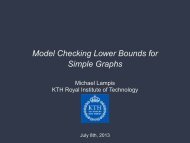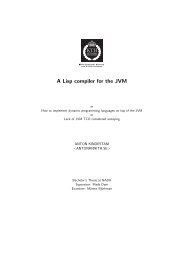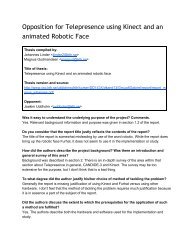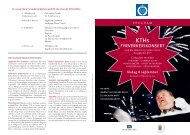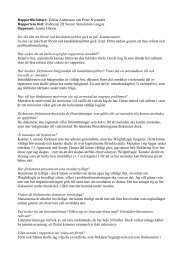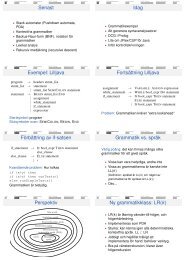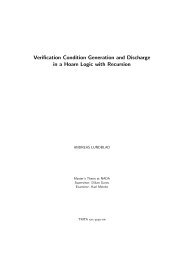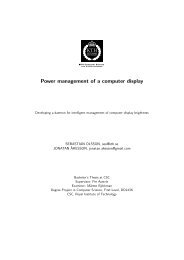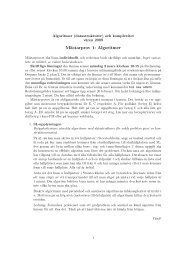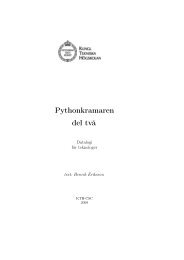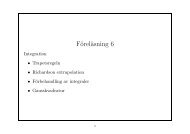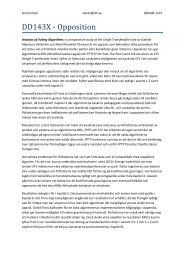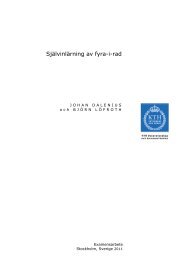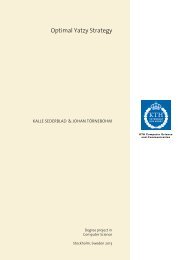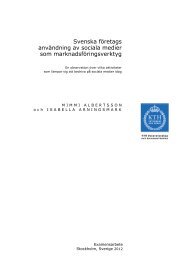Dr Faustus of Modern Physics - Department of Speech, Music and ...
Dr Faustus of Modern Physics - Department of Speech, Music and ...
Dr Faustus of Modern Physics - Department of Speech, Music and ...
Create successful ePaper yourself
Turn your PDF publications into a flip-book with our unique Google optimized e-Paper software.
21.4. KANT’S SYNTHETIC A PRIORI 97<br />
As indicated, it is still almost 100 years later unclear if the equality <strong>of</strong><br />
inertial <strong>and</strong> heavy mass as the basic Law underlying general relativity, is a<br />
definition or a fact, a clear sign <strong>of</strong> mastery or the inventor <strong>of</strong> the Law.<br />
21.4 Kant’s Synthetic A Priori<br />
Kant helped Einstein to formulate his double analytic-synthetic axioms <strong>of</strong><br />
relativity by suggesting that there are synthetic propositions which can be<br />
decided to be true before observation <strong>of</strong> reality, referred to as synthetic a<br />
priori propositions. So Kant himself mixed analytic with synthetic, which<br />
Einstein played on so cleverly.<br />
Kant suggests that the truth <strong>of</strong> a synthetic a priori statement is based<br />
on pure intuitions or our a priori formal representations <strong>of</strong> space <strong>and</strong> time.<br />
In other words, we can use our own brains as the test bench for the truth<br />
<strong>of</strong> a non-analytic statement without reference to any exterior reality. Thus<br />
the brain is supposed to check out itself in a self-referential procedure, which<br />
connects to deep questions about mind <strong>and</strong> self...<br />
A synthetic a priori statement could thus be true for all humans with rational<br />
human brains, but not necessarily in all logically possible worlds, where<br />
only analytic statements could be true a priori without exterior observation.<br />
In the spirit <strong>of</strong> Kant we may thus ask if Einstein’s Laws <strong>of</strong> constancy <strong>of</strong><br />
the speed <strong>of</strong> light <strong>and</strong> the equality <strong>of</strong> intertial <strong>and</strong> heavy mass, are synthetic<br />
a priori statements, which we can verify by “pure intuition”? Maybe Einstein<br />
could but it is not all clear that anyone <strong>of</strong> us is able to do so. Maybe Einstein<br />
by “pure intuition” could underst<strong>and</strong> that “space-time is curved”, but my<br />
intuition seems to lack this capability...<br />
In any case, in science it is essential to make a clear distinction between<br />
a definition <strong>and</strong> synthetic statement <strong>and</strong> not flip back an forth using double<br />
definition-synthetic statements. To nevertheless do so represents a deal with<br />
the Devil, which ultimately will take its toll.



